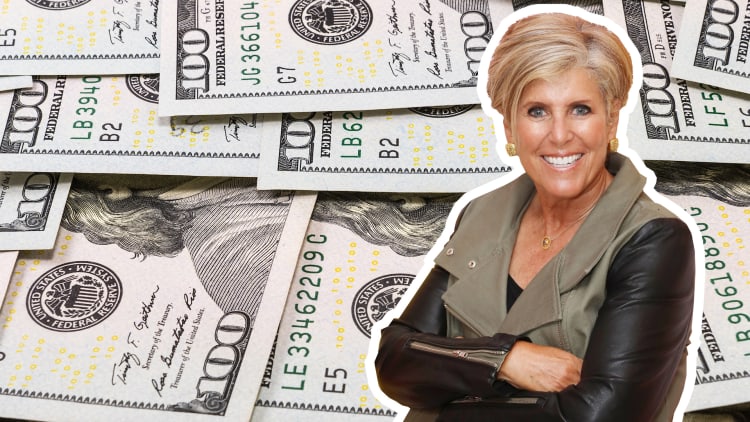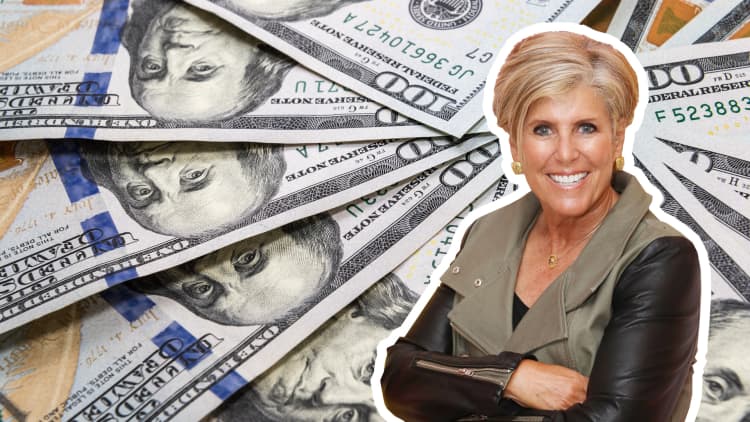Looking back on the past few decades, Suze Orman has one major money-related regret: Buying around $5,000 worth of Amazon stock in 1997 — and selling it just a few years later.
"If I had kept the number of shares that I had originally purchased for Amazon, oh my God, I can't even imagine what that would be worth today," the personal finance expert and best-selling author of "Women & Money" tells CNBC Make It. "It makes me sick to even tabulate it."
Orman first purchased shares of Amazon because she liked the branding. "I thought it was such a cool name for a stock," she says. "I could identify with the idea of me being a woman that wanted to be an Amazon."
She sold those shares when the company started taking off and, although she estimates that she quadrupled her money at the time, her shares would be worth millions today.
A $1,000 investment made at the time of Amazon's IPO in May 1997 would be worth around $1.2 million as of October 9, according to CNBC calculations. If Orman had invested her $5,000 around the same time and kept them, her shares would be worth more than $6 million.
When she sold, Orman recalls, she felt great. Now, "I get sick to my stomach when I think about what it would be worth," she says. But, she says, she can't complain too much about her losses: "I bought it back years later and still own it to this day."
Although Orman chose to put money in Amazon, she doesn't generally recommend investing in individual companies or trying to play the market. Investing is always risky and, even if you do take the risk, you should do lots of your own research before buying.
If you do buy, though, make sure to hold, she says: "When you have a good stock, it doesn't matter if it goes from 10 to 20 to 40, you keep it for the long run."
"Look at your Googles, look at your Facebooks, look at all of those things, are you kidding me?" she adds. "You keep a great stock forever."
You keep a great stock forever.Suze Ormanauthor of "Women and Money"
The method of "buy and hold" is also endorsed by legendary investors Warren Buffett and Jack Bogle. Buffett looks for businesses that will continue to have a competitive advantage decades down the line. "Nobody buys a farm based on whether they think it's going to rain next year," he said on CNBC's "Squawk Box." "They buy it because they think it's a good investment over 10 or 20 years."
A business is worth investing in, Buffett believes, because it will last, not because it's doing well right now. "If you aren't willing to own a stock for ten years, don't even think about owning it for ten minutes," he wrote in his 1996 letter to shareholders.
Likewise, regardless of the economic climate, investors should stay steady and focused on the future, Bogle, founder of The Vanguard Group, said on CNBC's "Power Lunch": "Don't let these changes in the market, even the big one [like the financial crisis] … change your mind, and never, never, never be in or out of the market. Always be in at a certain level."

Bogle specifically recommends putting money in index funds, such as the S&P 500, which automatically invest you in a diverse array of companies. "If you hold the stock market, you will grow with America," he said.
If you try to trade in and out of the market, "your emotions will defeat you totally," Bogle added. "Short-term betting is not a good way to go."
As a safer alternative to picking individual stocks, Orman also recommends low-risk investing options, such as index funds and ETFs. She also suggests a strategy known as "dollar cost averaging," in which you invest a fixed amount into the stock market on a regular basis instead of buying a lump sum of stock all at once.
When share prices are high, you're able to buy less, but when prices drop, you can buy more, and it all levels out in the end. "Over time, your dollars — the cost of those shares — are averaged so that you always come out ahead," Orman says.
Don't miss: Suze Orman: Pay off debt ASAP, and not because it costs you money
Like this story? Subscribe to CNBC Make It on YouTube!




